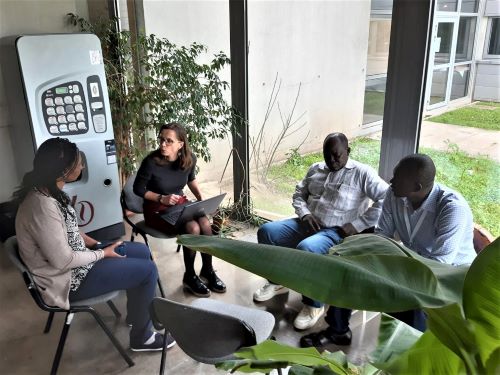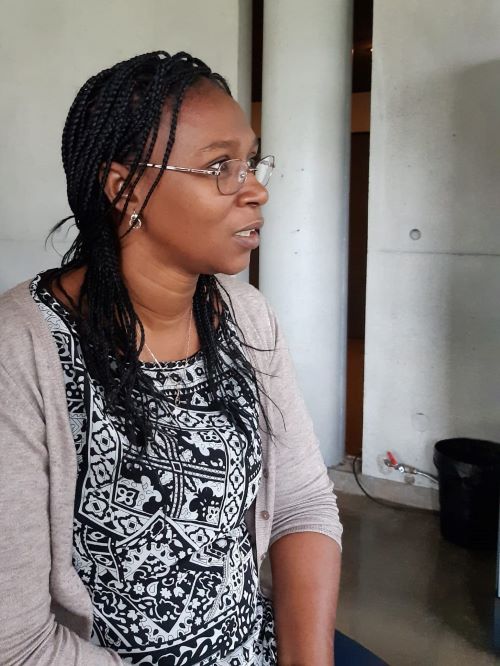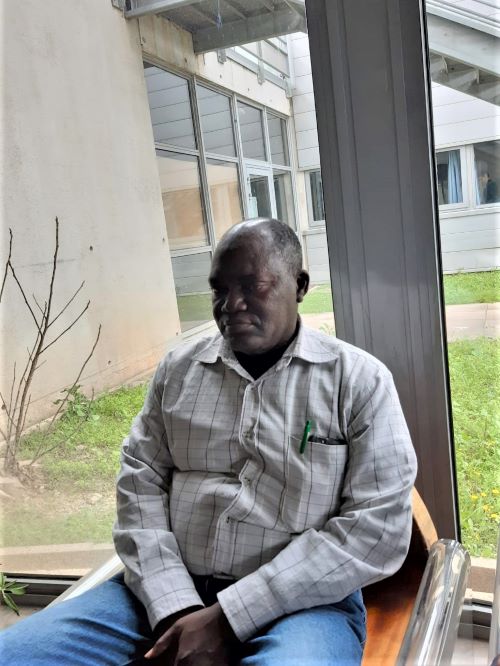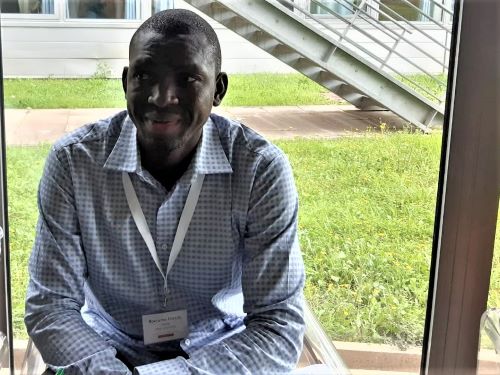The McKnight Foundation is holding the annual meeting of its Collaborative Crops Research Programme’s West African Community of Practice from 24 to 28 in Montpellier. On this occasion, about 50 representatives of projects funded by the Foundation in Burkina Faso, Mali and Niger attend this event hosted by Agropolis Fondation. Researchers, of course, but not only... We met with Fatoumata Ba Ama, a nutrition researcher at the CNRST Research Institute of Applied Sciences and Technology in Burkina Faso, Roger Kaboré, representative of the Burkinabè NGO AMSP and Bourama Diakité, from the Malian NGO Association for the Development of Production and Training Activities. Cross interviews...

- Cross Interviews
Can you introduce yourself in a few words?
Fatoumata Ba Ama: I am the leader of a project called "Child nutrition" which aims to improve the nutritional status of children in rural areas. In Burkina Faso, we are faced with a high level of food vulnerability among the population. The children, target of our project, suffer from multiple deficiencies. Our research project aims to improve the nutritional status of children from 6 months to 12 years old. One of its specificities lies in the fact that it focuses on children over the age of 6 years, who are often neglected in child nutrition projects.

- Fatoumata Ba Ama
Roger Kabore: I represent a farmers’ organisation in Burkina Faso: the AMSP. This acronym comes from an expression in Mooré language, which is a bit the slogan of our association, and which means "knowledge, knowledge must support the physical strength of farmers for more results".

- Roger Kabore
Bourama Diakité: I work in a Malian NGO, the Association for the Development of Production and Training Activities, for which I coordinate the project “Strengthening farmer-led research networks to improve local innovation”. We have been working with the McKnight Foundation since 2013.

- Bourama Diakite
What are you expecting from this meeting?
Fatoumata Ba Ama: This is an annual meeting. Here, we present the results obtained during the year and look for synergies with other projects. For example, for nutrition, production comes into play (varieties, production techniques, etc.). Transformation must also be taken into account. Here, we meet representatives of projects on soils, seeds, processing, etc. At the end of our meeting, I would like to be able to work with all these people, to have a greater impact. I have already identified people who are not necessarily in Burkina Faso, but who have other ways of doing things in Niger, in Mali, I learned from their presentations.
Roger Kabore: As farmers, this type of meeting gives us an idea of the progress in sustainable agriculture in various countries. We are also interested in all the areas, all the projects presented, because different problems and solutions are addressed in different dimensions. We also look forward to expressing to researchers what we think as farmers: that the frank collaboration between researchers and farmers must continue, that this is the guarantee of the success of our activities, and that the results can only be obtained through the interaction between researchers and farmers.
Bourama Diakité: We work a lot on local innovations by farmers, especially this year, on crop associations (e.g. leguminous cereals, sorghum niebe, sorghum groundnut). By taking part in this meeting, I will inform the other participants about our actions, but also see to what extent we can find synergies with other projects in the field of nutrition, for example. We can produce food and still be in a situation of malnutrition. Our project funded by the McKnight Foundation aims to better monitor agricultural production so that it can be used to feed people.
What are the innovative results of your project?
Fatoumata Ba Ama: Our research has taught us that the main obstacle to improving nutritional status is that socio-cultural factors are not taken into account in the projects. We have shown that, depending on ethnic, social and cultural differences, people make different choices to feed themselves. It is therefore necessary to involve them from the outset and take into account their cultural differences.
Roger Kabore: We have been involved in the foundation’s activities since 2006, we have capitalized on a lot of knowledge. We now want to make policy recommendations to change the way we do research and extension work with farmers. Any ideas? We believe that we can ensure that farmers are trained at a high level, to become actors in research, and not just the objects of research.
Bourama Diakité: We have developed composting, using organic matter, for soil fertility. This is a very important step forward for our degraded soils. We have also highlighted the importance of crop associations for organic crops. Little by little, producers are moving away from monoculture. We were able to work with a network of producers, we accompanied them, followed them to identify the best associations: 2 lines of sorghum, one line of cowpea gave the best result in terms of production.
Interviews conducted by Anne Perrin in Montpelllier (Agropolis Campus) on 25/02/20